
Mali, officially the Republic of Mali, is a landlocked country in West Africa. Mali is the eighth-largest country in Africa, with an area of over 1,241,238 square kilometres (479,245 sq mi). The country is bordered to the north by Algeria, to the east by Niger, to the northwest by Mauritania, to the south by Burkina Faso and Ivory Coast, and to the west by Guinea and Senegal. The population of Mali is 21.9 million, 67% of which was estimated to be under the age of 25 in 2017. Its capital and largest city is Bamako. The country has 13 official languages, of which Bambara is the most commonly spoken.

Following independence in 1960, Mali initially followed a socialist path and was aligned ideologically with the communist bloc. Mali's foreign policy orientation became increasingly pragmatic and pro-Western over time. Since the institution of a democratic form of government in 1992, Mali's relations with the West in general and the United States in particular have improved significantly. U.S.-Malian relations are described by the U.S. Department of State as "excellent and expanding," especially given Mali's recent record of democratic stability in the volatile area of West Africa and its avowed support of the war on terrorism. Mali is reported to be one of the largest recipients of U.S. aid in Africa.

Bamako is the capital and largest city of Mali, with a 2022 population of 4,227,569. It is located on the Niger River, near the rapids that divide the upper and middle Niger valleys in the southwestern part of the country.
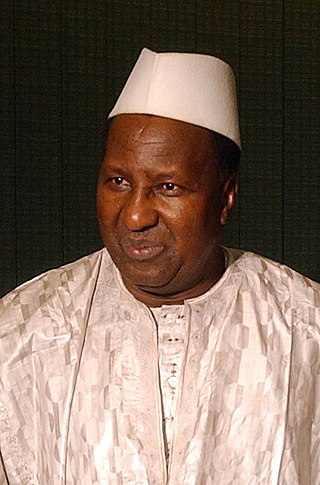
Alpha Oumar Konaré is a Malian politician, professor, historian and archaeologist, who served as President of Mali for two five-year terms from 1992 to 2002 and was Chairperson of the African Union Commission from 2003 to 2008.
The Mali national football team represents Mali in men's international football and is governed by the Malian Football Federation. The team's nickname is Les Aigles. They represent both FIFA and the Confederation of African Football (CAF).
Cheick Oumar Sissoko is a Malian film director and politician.

The Soninke people are a West African Mande-speaking ethnic group found in Mali, southern Mauritania, eastern Senegal, The Gambia, and Guinea. They speak the Soninke language, also called the Serakhulle or Azer language, which is one of the Mande languages. Soninke people were the founders of the ancient empire of Ghana or Wagadou c. 200–1240 CE, Subgroups of Soninke include the Jakhanke, Maraka and Wangara. When the Ghana empire was destroyed, the resulting diaspora brought Soninkes to Mali, Mauritania, Senegal, Gambia, Burkina Faso, Côte d'Ivoire, Guinée-Conakry, modern-day Republic of Ghana, Kano in Nigeria, and Guinea-Bissau where some of this trading diaspora was called Wangara.
Malick Sidibé was a Malian photographer from a Fulani village in Soloba, who was noted for his black-and-white studies of popular culture in the 1960s in Bamako. Sidibé had a long and fruitful career as a photographer in Bamako, Mali, and was a well-known figure in his community. In 1994 he had his first exhibition outside of Mali and received much critical praise for his carefully composed portraits. Sidibé's work has since become well known and renowned on a global scale. His work was the subject of a number of publications and exhibited throughout Europe and the United States. In 2007, he received a Golden Lion for Lifetime Achievement at the Venice Biennale, becoming both the first photographer and the first African so recognized. Other awards he has received include a Hasselblad Award for photography in 2003, an International Center of Photography Infinity Award for Lifetime Achievement (2008), and a World Press Photo award (2010).
The mass media in Mali includes print, radio, television, and the Internet.
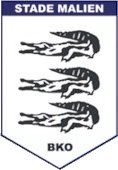
Stade Malien is a Malian professional football and sports club based in Bamako. One of the two dominant clubs of Malian football, their eastern Bamako training grounds host other sports as well, including a successful basketball club.

Articles related to Mali include:
Manthia Diawara is a Malian writer, filmmaker, cultural theorist, scholar, and art historian. He holds the title of University Professor at New York University (NYU), where he is Director of the Institute of Afro-American Affairs.

Susanne Schröter is a contemporary Social Anthropologist focussing primarily on Islam, Gender and Conflict Studies.
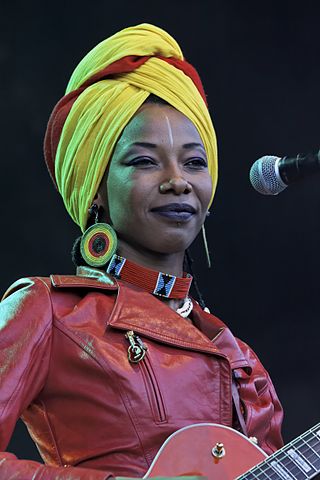
Fatoumata Diawara is a Malian singer-songwriter currently living in France.

The Institut National des Arts de Bamako (INA) is a national school for the arts in Bamako, Mali. It was the only school of its kind in Mali until 2004. Originally set up to train Sudanese artisans, it now offers courses in jewellery making and design, illustration, painting, sculpture, photography, music, and theatre. It has produced many of Mali’s most well-known artists and has hosted numerous exhibitions, workshops, and performances.
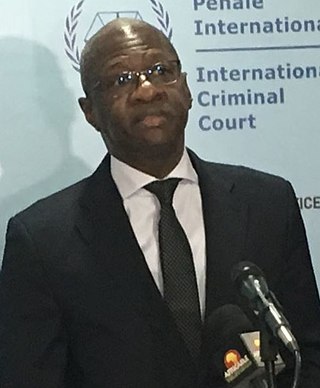
Mamadou Ismaïla Konate is a Malian lawyer. He started his career at PricewaterhouseCoopers before creating his own firm in Bamako, Jurifis Consult, in 1998. On 7 July 2016 he was appointed Malian Secretary of State for Justice and took leave from the Paris and Bamako Bars and from his firm. He left office on 27 November 2017.
Elisabeth Charlotte Pauli was an artist and ethnographer working at the Frobenius Institute in Frankfurt am Main. She participated in several expeditions of the institute as participant and co-organiser, and produced a large number of copies of prehistoric rock art in Europe and Africa. During the Second World War she and three other women acted as the temporary management of the institute.

Carola Lentz is a German social anthropologist and, since November 2020, president of the Goethe-Institut. She is senior research professor at the Department of Anthropology and African Studies at Johannes Gutenberg University, Mainz.
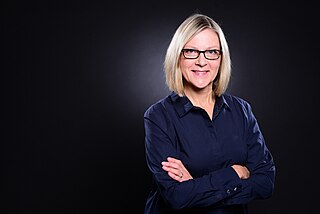
Katja Werthmann is a German ethnologist with a regional focus on West Africa. She is a professor for 'Society, politics and economy of Africa' at the Institute for African Studies at the University of Leipzig. K. Werthmann conducts research in Anglophone and Francophone Africa on the handling of material and symbolic resources in the context of spatial and social mobility in contemporary Africa. She has made contributions to political, economic, religious and urban ethnology. After the Doctorate at the Freie Universität Berlin and the Habilitation at the Johannes Gutenberg University Mainz she taught at universities in Germany, Switzerland (Zürich) and Sweden (Uppsala). Since 2012 she has been a university professor at the University of Leipzig.
Diarra, also referred to as Kingui or Kaniaga was a Soninke state in what is now northwestern Mali, centered around the town of Diarra.













